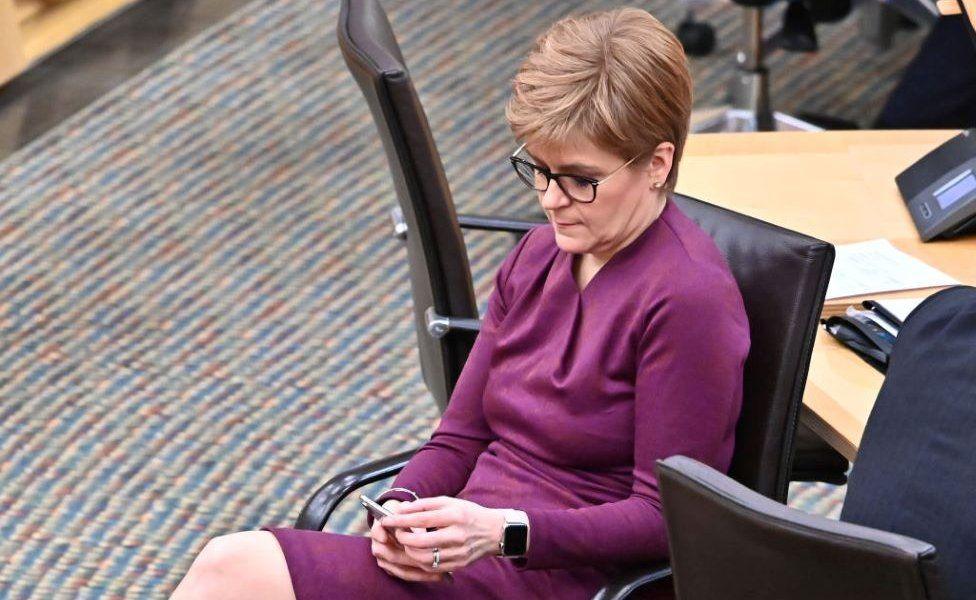Probe launched over Scottish government's informal messages

An intervention has been launched into the Scottish government's use of informal messaging
- Published
Official action has been launched by a watchdog into the Scottish government's use of informal messaging.
The Scottish Information Commissioner, who oversees freedom of information (FOI) laws, stated that the Covid-19 inquiry had raised "significant practice concerns" over how ministers used messaging services such as WhatsApp.
The inquiry heard that a number of Scottish government figures, including the then First Minister Nicola Sturgeon, had deleted messages that referred to government business.
The Scottish government said it had not yet received the notice from the commissioner, but would co-operate as required.
David Hamilton, the Scottish information commissioner, stated that failing to retain a full record of the decision-making process had "subverted the principles" of freedom of information legislation.
He added that the public's right to request information had been frustrated, and would officially launch an "intervention" to make practice recommendations.
Speaking to BBC Scotland's The Sunday Show, Mr Hamilton stated: "Some of the comments, the lack of record retention, lack of minutes, are all things that are in contravention of the codes of practice that accompany freedom of information legislation.
"The fact that we have these incomplete records of decisions is something that is in breach of the code."

David Hamilton took over as information commissioner in October 2023
The intervention will review current practices and identify steps to ensure improvements are made in relation to how officials and ministers use and retain informal communications in the future, to ensure people behave in an "appropriate way".
Mr Hamilton denied that there was any conflict of interest in the investigation due to the first minister, Humza Yousaf, having previously criticised the Scottish Police Federation in messages sent to colleagues.
At the time he was the justice secretary and Mr Hamilton was serving as chairman of the organisation.
The issue of informal messages, retention of messages and the lack of minutes for important government meetings, was a key part of the Covid inquiry in Scotland.
Jack deleted WhatsApps to 'free up storage'
- Published1 February 2024
Swinney manually deleted Covid texts to Sturgeon
- Published30 January 2024
The Scottish government was accused of "industrial scale" deletion of messages by opposition parties, but Ms Sturgeon stated that any "salient" points were recorded on the corporate record, and it was informal messages that were deleted.
The inquiry had also heard that minutes were not kept for the Scottish government's equivalent of Cobra meetings - the Scottish Government Resilience Room - or for so-called "gold command" meetings, which comprised Ms Sturgeon and a handful of others.

Nicola Sturgeon was unable to provide some of her messages to the Covid-19 inquiry
The former finance secretary Kate Forbes expressed surprise to the inquiry that minutes were not kept for some meetings.
The UK government has also been criticised over its record-keeping, with the Scottish secretary Alister Jack telling the inquiry he had deleted all of his messages to create memory space on his phone.
The Scottish government stated that it remained "committed" to ensuring "openness and transparency" and that Scotland had the most "open and far-reaching" FOI legislation in the UK.
A spokesman said: "We have not yet received the notice from the Scottish Information Commissioner, when we do so we will respond and of course cooperate with the commissioner as required.
"The first minister has commissioned an externally led review into the use of mobile messaging apps and non-corporate technology in the Scottish government. This will take particular account of government interaction with statutory public inquiries."
The commissioner is the appeal body for FOI requests made to Scottish public authorities.